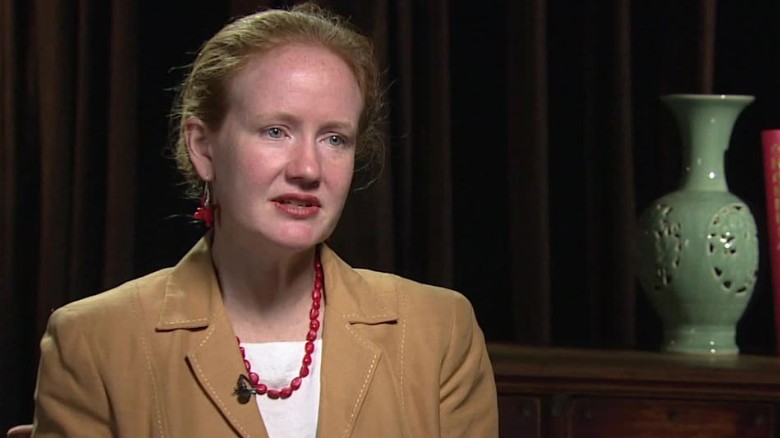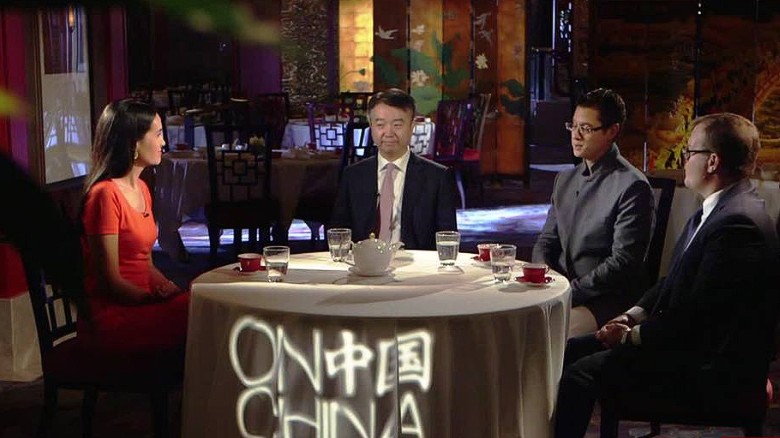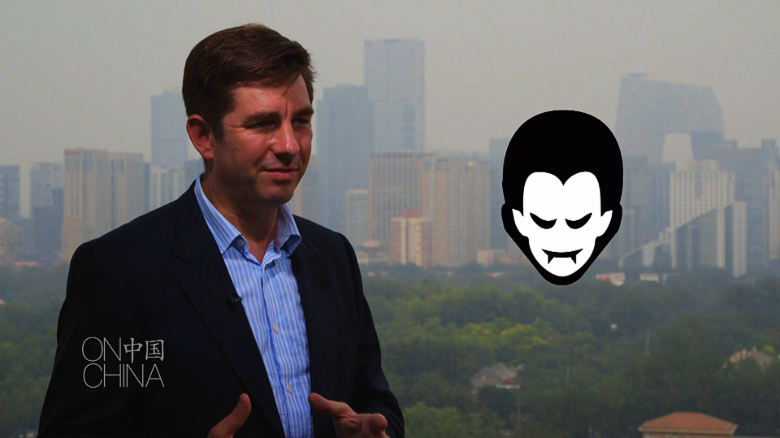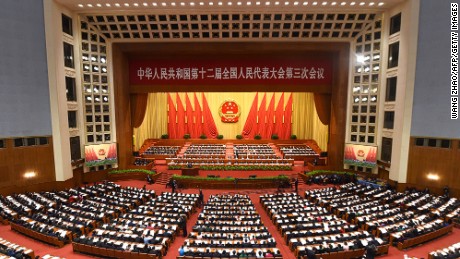Meet China's 1%: The billionaires in Beijing's halls of power
Being rich in China isn't as easy as it once was.
A recent stock market crash wiped billions off the balance sheets of the nation's top tycoons. And then there's the anti-corruption campaign which continues to ensnare former party leaders.
For the estimated 360 billionaires in China today these are tough times.

On China: How the stock market affect China's top rich
"They are scared," says Shanghai-based economic trend watcher, and founder of the China Market Research Group, Shaun Rein.
"The anti-corruption crackdown is definitely real, and it's going through all levels of the country," he told CNN.
"It's having a much greater impact on the economy than people realize because government officials don't want to approve a new initiative because they are worried about getting arrested.
"The billionaires right now are going very low profile. They are spending a lot of time overseas right now, on vacations."

On China: How corruption campaign affects China's rich
Keeping wealth in the shadows
And while some may be extending their holidays abroad, a number of China's ultra-rich have gone to extraordinary lengths to conceal their wealth.
Hurun China Rich List founder Rupert Hoogewerf says for every one Chinese billionaire that has been publicly identified, there are at least two who choose to lurk in the shadows -- the so-called "vampire billionaires."
"'Vampire wealth' is wealth owned by 'vampires,' people who are terrified of daylight," says Hoogewerf.

On China: The vampire billionaires
"If they see the daylight, or in their case, if their wealth is put into the public eye, these people shrivel up and die. They get arrested immediately."
With conspicuous consumption now politically incorrect in a China under Xi Jinping, it seems the so-called "Bling Dynasty" is nearing an end as China's 1% look beyond attention-seeking designer bags and supercars in search of more subtle ways to spend it.
Overseas jaunts
"They want to travel," says Rein.
"They want to experience something new. They want to go to South Africa, they want to go to Alaska, they want to go to Canada for scenes of natural beauty and exercise. Bling is gone, experiences are in."
But it seems much more difficult for China's tycoons to convince their kids to curb their conspicuous shopping habits. Known as the "Fu'erdai" or "second generation rich," many have little combat readiness in either politics or business, and are known for their outrageous displays of wealth.
One Fu'erdai son recently made headlines for sharing photos online of his dog sporting two gold Apple Watches.
"That dog belonged to, by way of his son or daughter, the son of the richest person in China, Wang Jianlin," says New York Times reporter Mike Forsythe, who has investigated the wealth of China's elite.

On China: Are we at the end of the bling dynasty?
"Maybe there's a remaining Bling Dynasty," he adds. "Maybe if you're from a family who feels that they are untouchable, you can still remain 'bling-ish.'"
Still, there's no excuse in post-bling China. After images of the Apple Watch-wearing dog went viral, Wang promptly blamed youth and a Western education for his son's behavior. No matter who is actually to blame, disciplining the Fu'erdai remains a key concern for China's tycoons who are preparing to pass on their wealth.
Undue influence
China is second only to the United States in having the most number of billionaires in the world. But in China, the ultra rich have a far more disproportionate voice in government.
Forsythe points out that 18 members of China's National People's Congress and its advisory body have a greater net worth than all the members of the U.S. Congress, Supreme Court and President Obama's cabinet combined.
"It's an incredible amount of wealth that goes to Beijing every March," says Forsythe.

On China: Ultra-rich's voice in China's congress
"You don't see as many farmers, you know? You don't see as many ordinary people there. Why do these billionaires, fabulously wealthy billionaires, have a seat at the table?"
Given China's stock market volatility and ongoing war on corruption, dealing with vast wealth isn't what it used to be. But at least those billions translate into greater representation in Beijing's halls of power.
News Courtesy: www.cnn.com











